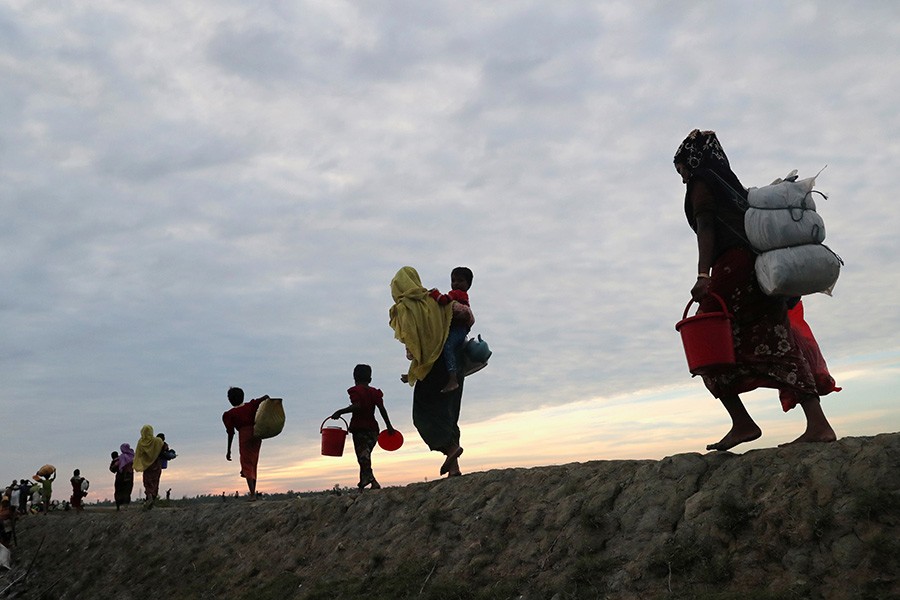Canada's special envoy on the Rohingya crisis Bob Rae has said it would be 'unconscionable' for the member states of the UN to sanction a repatriation that was forced, or that did not include basic protections of human security and human rights.
"This is not a short term problem with a quick fix. The fact that an agreement has been signed between the governments of Bangladesh and Myanmar is a first step in a possible process of repatriation," he said in a report, a copy of which UNB has obtained.
But, he said, there are several additional assurances and guarantees that have to be provided before such an agreement could be implemented.
Canadian prime minister appointed Bob Rae as a special envoy to Myanmar on October 23 and since that time Bob has travelled to Indonesia, Bangladesh, Myanmar, Vietnam, and the UN in New York and have had numerous discussions with officials, leaders, and NGOs in those countries as well as in Ottawa, and at the UN, as well as with a number of groups and individuals with an interest in the region.
"There is also the challenge of resources at the border assessing re-admittance, as well as the conditions that await the returnees in Rakhine State. And the issues of political participation and citizenship loom large over the whole picture," he said.
The Canadian envoy said the words are inadequate to express the extent of the damage and trauma being suffered by women and girls among the Rohingya refugees.
"The condition of women and girls is of particular concern. There is clear evidence of sexual trauma, and a focused effort to deal with this issue is required." The envoy said Canada's attention to this issue has already been announced by the Minister of International Development, and they encouraged others to join in these initiatives.
"My own interviews with a group of women were a detailed and graphic account of abuse and violence, including sexual violence as a weapon of war. These allegations of crimes against humanity need to be addressed directly by the international community, and there is a need for post-traumatic measures to help those who survived this ordeal," reads his six-page report.
Bob Rae said additional resources will need to be gathered to make sure the response is adequate to deal with the extent of the abuse and its consequences.
In conclusion, the envoy said the Canadian Prime Minister has given him a challenging assignment, which he has been asked to continue for a few more weeks so that he can complete his analysis and recommendations.
"I hope that I shall be able to see Rakhine State first hand, and return to Cox's Bazar to see how conditions are evolving, as well as talk further with officials in Myanmar, Bangladesh and international organisations," Bob Rae said.
The notion that these are all issues of sovereignty, to be settled exclusively between the government of Myanmar and Bangladesh, misses the point that the United Nations General Assembly has recognised that the duty to protect the security of individuals is initially the duty of states but failing that becomes a wider regional, and ultimately international obligation.
Referring to his discussions with officials, leaders and NGOs in Indonesia, Bangladesh, Myanmar, Vietnam and the UN in New York, Bob Rae said, "These discussions will continue. I shall be travelling again to the region in the New Year, and will issue a final report with recommendations after my return."
His initial findings are divided into three parts: first, the humanitarian crisis in both Bangladesh and Myanmar as a result of the recent exodus of over 655,000 Rohingya refugees into Bangladesh, adding to the hundreds of thousands of refugees already in Bangladesh and the 120,000 in camps under virtual lockdown in Rakhine State in Myanmar.
Second, the efforts required to ensure the secure return of refugees to their homes with full political and social rights, as well as to ensure the implementation of the recommendations of the Kofi Annan-led Advisory Commission on Rakhine State.
Thirdly, the report highlighted the need to ensure that the substantial evidence of breaches of law and human rights is investigated and assessed in a credible fashion.


